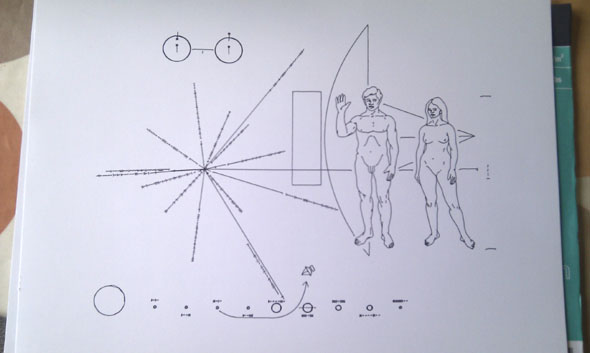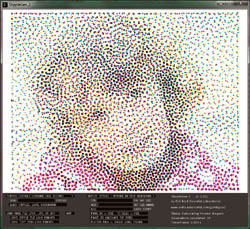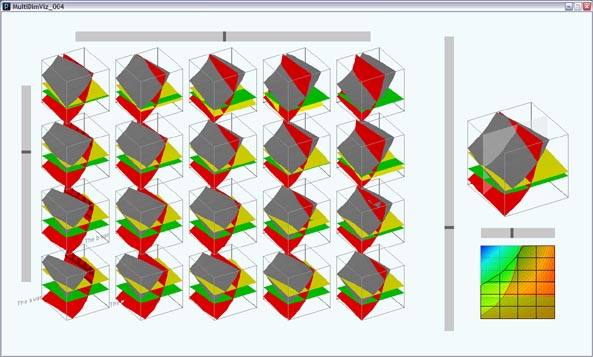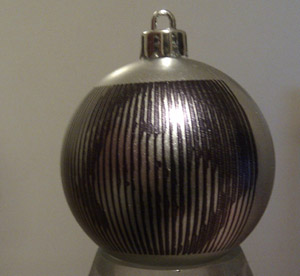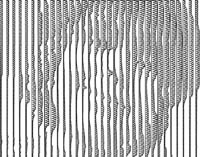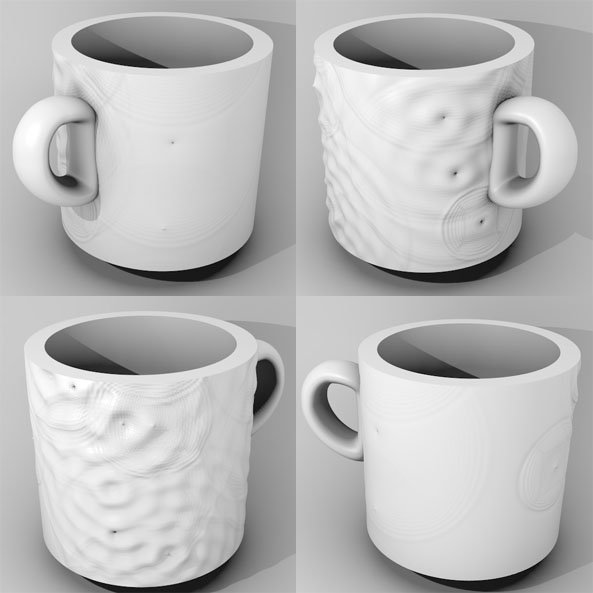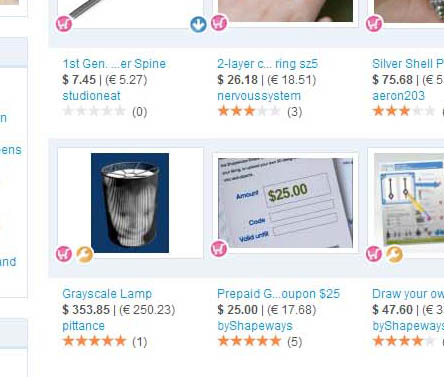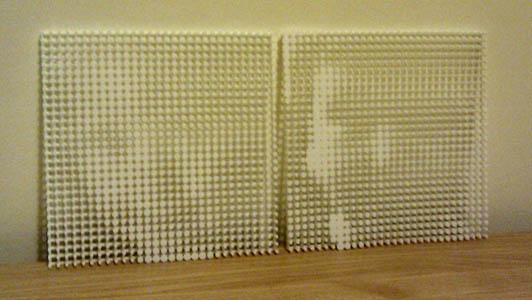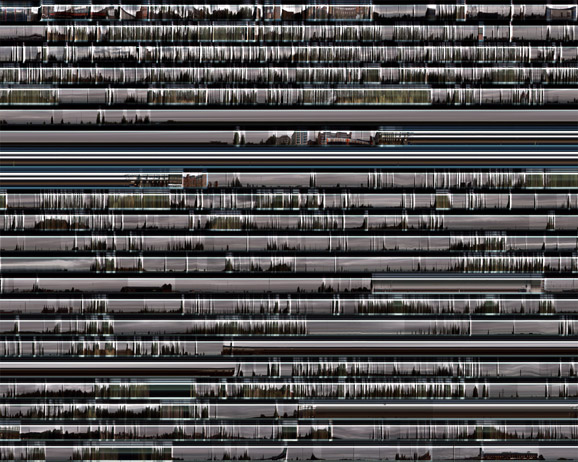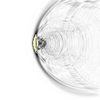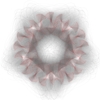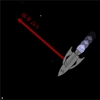
| Art: Drawbot
Update #2 19th August 2012 I uploaded a couple of drawbot videos to YouTube:
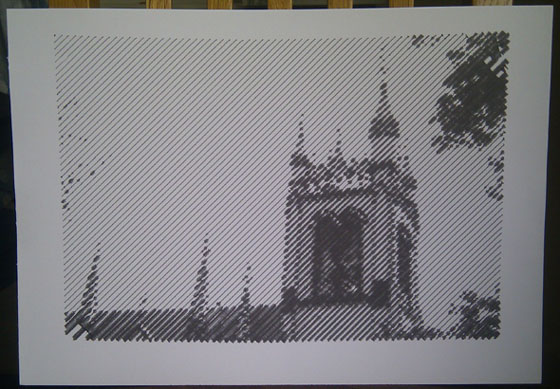 The FM/AM wave shader source code I used for the final clip and the image above is here. |
||||||
| Art: Drawbot
Update 12th August 2012 So far I've been testing different drawing techniques with the drawbot, now I have some experience of what works I have a few projects that I really want to work on. Until then here's a roundup of the work I've done so far (more images here)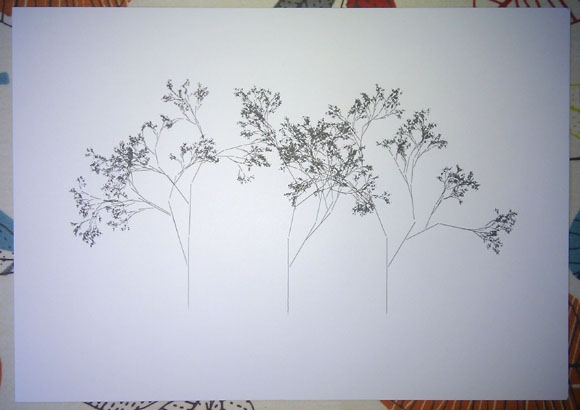 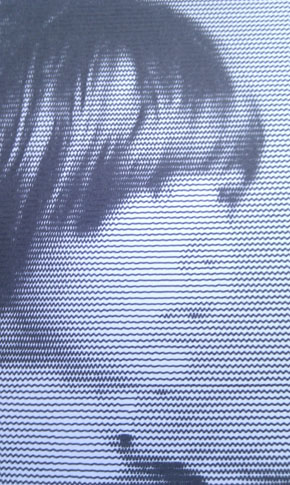 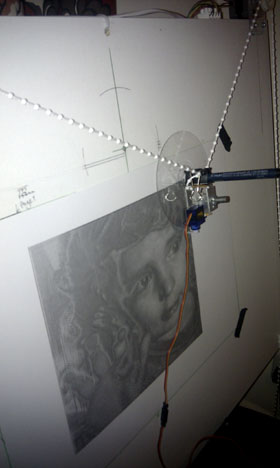 Read more |
||||||
| Programming:
New Eggbot Drawbot Software 1st July 2012 I've updated my draft Eggbot-based drawbot software, you can find the Processing sketch here. The previous work I did with the drawbot was a limited case, drawing hard-coded circles and spirals from StippleGen output, whereas I've always wanted to have something more general.
[Image above is of the Pioneer plaque, the adapted SVG file is included in the download and is a public-domain image sourced here] I've used the geomerative library to read the SVG data, split out each shape and polygonise it for drawing so I hope that this will now be a reasonably solid Eggbot drawbot sketch. |
||||||
| Art:
Eggbot Drawbot... in Colour 24th June 2012 I've been working on a drawbot based on Eggbot and Sandy Noble's Polargraph for probably a year or so, if not more. I've finally cracked the accuracy problems that have plagued it for most of that time and the point where it became useful coincided with StippleGen being released by Evil Mad Scientist, able to produce beautiful stipple patterns for Eggbot. I've adapted some Processing code to run the stipple patterns StippleGen produces on the drawbot and today I tried a new trick - colour!
Read more |
||||||
| Project:
3D Printed Music Box Records 2nd April 2012 Some time ago we bought a Fisher-Price music box record player for the kids and I wondered if it would be possible to make new records for it. 3D printing offered a way but I needed to put in quite some work and develop quite a few bits of code to get the model. This post will cover how I did it. Read more |
||||||
| Programming:
5D Data Visualisation 23rd November 2011
For a while I've been interested in visualisation of data. It's something that I have to deal with every day at work and I've tried to learn from many of the people active in this field, not least Ben Fry (one of the creators of Processing and author of the excellent "Visualizing Data") and Edward R Tufte (if you're interested in this data visualisation I would recommend you buy all his beautiful books) My main problem is this: how can I see the response of a system (in my case an aircraft concept design) when I change its inputs? It's not an uncommon problem by any means but for me the complexity comes from the number of inputs and outputs that I'd like to be able to see & understand. Read more |
||||||
| Programming:
Faces (& Bitmaps) for Eggbot 20th November 2011 On the 5th December I shall be taking Egg bot to our local Christmas craft fair, I've made a few Christmassey designs but I really wanted to be able to take a picture and draw people's faces on Christmas decorations 'live' on the day. I've found a way to do it with Processing and a webcam...
|
||||||
| Project:
"Eggplot" - Eggbot-based plotter 1st September 2011 A project that I've been desperate to try for a while: convert Eggbot from Evil Mad Scientist Laboratories into a plotter. This isn't a plotter that works with X-Y axes, rather it's a plotter that works by hanging a pen assembly from a string passing over two motor spindles. I have no idea what this kind of plotter is called if in fact it has a name... 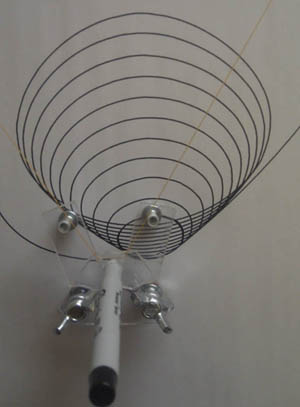
Read more... |
||||||
| Programming:
Wave Espresso Cup 20th July 2011 The latest 3D printing project that I've taken on is to design a cup using Shapeways' new food-safe glazed ceramic material.
Read more... |
||||||
| Project:
ICFF Competition 13th March 2011 I entered the (now closed) Shapeways ICFF competition recently and I was very excited to see my entry on the Shapeways front page: I've seen the other entries so I don't have much hope of winning but it's really cool to see it up with some really excellent designs! |
||||||
| Programming:
Printing Photos in 3D 13th March 2011 One of the 3D printing projects that I've had the most satisfaction from is a Processing sketch to convert 2D photos into a model that can be 3D printed. This isn't a 3D model of what's in the photo, rather it's a way of representing the photo itself with a 3D printed model.
I describe 2 different techniques in this post and you'll find the source code for the sketches at the end... Read more... |
||||||
| Art:
London to Bristol, a Slit Scan Photo 9th January 2011 A while back I took a train journey from a town north of London to Bristol. I had my netbook along with me and had planned to get a bit of recreational coding done. In the end I started playing around with the examples on one of the Processing libraries I'd not used very much before - the excellent GSVideo. The example was a slit scan program and I used it to make a composite picture of the entire journey from London Paddington to Bristol Temple Meads.
|
||||||
| Project:
Schools Wind Tunnel 20th December 2010 The intention of this project was to see if I could develop a desktop-size wind tunnel that might be usable in schools or colleges. By background I'm an aerospace engineer and I thought that this might be somewhere I could add some value. I did manage to get a working wind tunnel although I didn't manage to get some of the experiments I'd hoped for working. I made the tunnel with laser-cut plywood from Ponoko and the models for the test section were all 3D printed at Shapeways. 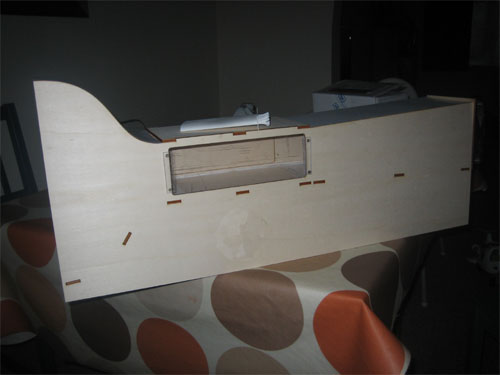 Read more... |
||||||
| Art:
Gravity 12th December 2010 One of the nice things about Processing is the number of contributed libraries available. I used the traer physics library (should be here but was down when I last checked - you can use the toxi utilities libraries instead if traer physics is not available now) to simulate masses moving under gravity towing another mass, not interacting gravitationally, on a spring. With random positions for the start positions and velocities some nice pictures came up, all I had to do was mark the positions of the masses and springs each frame - it's that process that I used to create the graphics in the banner at the top of the page. Pictures were interesting but I've also been able to get a 3D model as well (depending on how picky you want to be it could be argued that it represents a time history of a simulation in 3D space and so might be described as 4D..)
Read more... |
||||||
| Art:
OpenProcessing 11th December 2010 OpenProcessing is an online community to share Processing sketches. All sketches are released under creative commons attribution share-alike license, source code under creative commons GNU GPL so code and ideas can be shared. I've put three sketches up so far (my portfolio on the site is here):
Read more... |
||||||
| New
website style, new content 10th December 2010 Welcome to the new style for my website. For a long time this has been the place I've put graphics based on the books of Iain M Banks; I'm pleased to say that will still be the case (see the links on the right hand side) but I've added some new content. Now this website will also contain information on projects I've undertaken, programing I've done (with links to any code I release) and art and design that I'd like to share. I hope you find it interesting, I'll be adding content as I go. The new material will deal with the things I've done with Processing, graphics, art and design. Wherever I can I'll release code or at least give examples - I'd like to share the enjoyment that I've had creating these projects in the hope that it might inspire you to create something yourself - if you do please let me know |
||||||
fastness - Iain Banks Graphics

follow @fastness on twitter
Processing:
An open source programming tool aimed at artists, engineers and designers. Simple, light and Java-based with a wealth of libraries and a strong user community
Shapeways:
3D printing for the masses - plastics and metal to your design or team up with a desigenr to personalise a design with a 'co-creator'. Visit my Shapeways shop for some things I've designed.
Meshlab:
MeshLab is an open source, portable, and extensible system for the processing and editing of unstructured 3D triangular meshes
Blender:
Blender is the free open source 3D content creation suite, available for all major operating systems under the GNU General Public License
Gimp:
GIMP is the GNU Image Manipulation Program. It is a freely distributed piece of software for such tasks as photo retouching, image composition and image authoring. It works on many operating systems, in many languages
Inkscape:
An Open Source vector graphics editor, with capabilities similar to Illustrator, CorelDraw, or Xara X, using the W3C standard Scalable Vector Graphics (SVG) file format
Ponoko:
Retail laser cutting outlet with centres in New Zealand, USA, Germany, Italy and the UK (if not more by now)
Eclipse:
Java development environment
